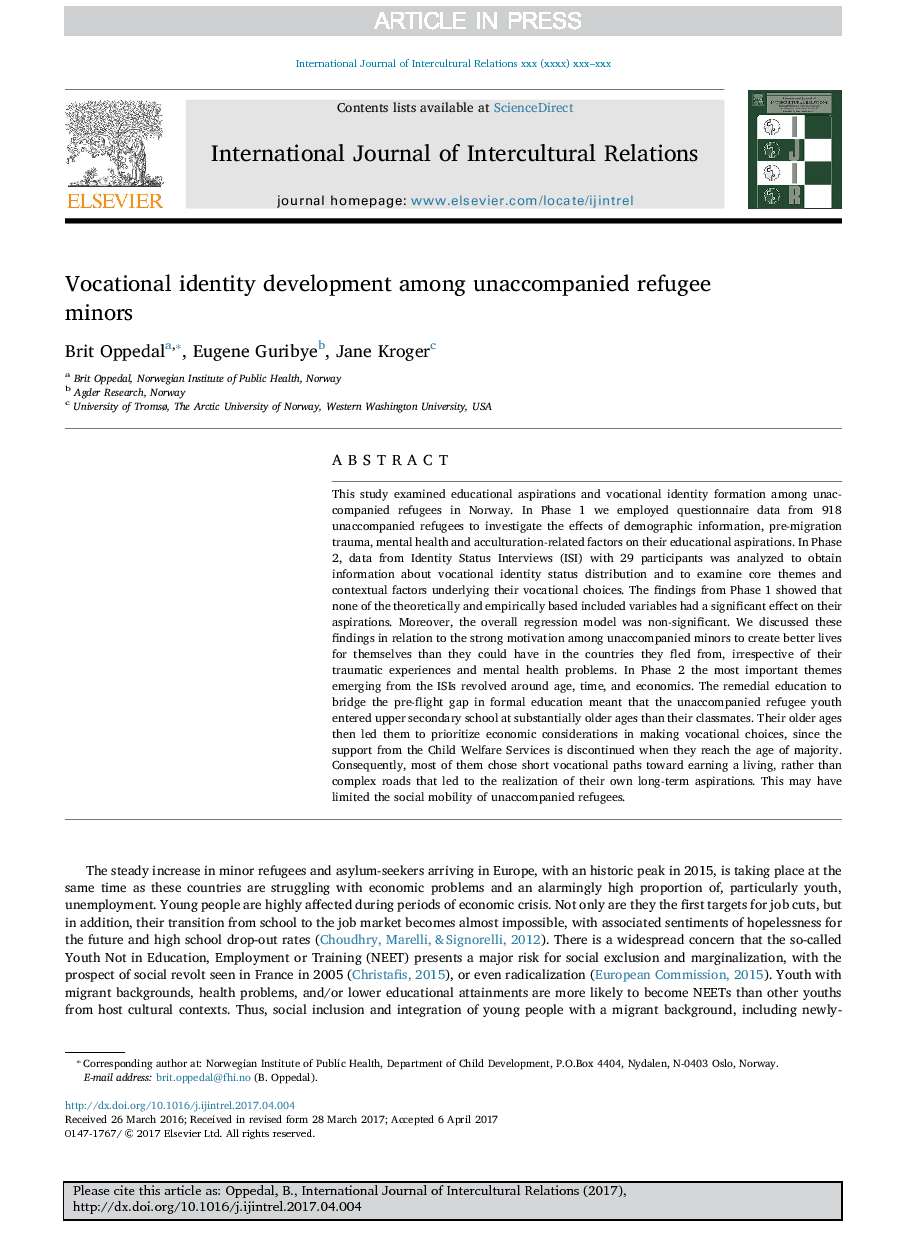ترجمه فارسی عنوان مقاله
توسعه هویت حرفه ای در میان افراد زیر سن قانونی بی پناه
عنوان انگلیسی
Vocational identity development among unaccompanied refugee minors
| کد مقاله | سال انتشار | تعداد صفحات مقاله انگلیسی |
|---|---|---|
| 91522 | 2017 | 15 صفحه PDF |
منبع

Publisher : Elsevier - Science Direct (الزویر - ساینس دایرکت)
Journal : International Journal of Intercultural Relations, Volume 60, September 2017, Pages 145-159

